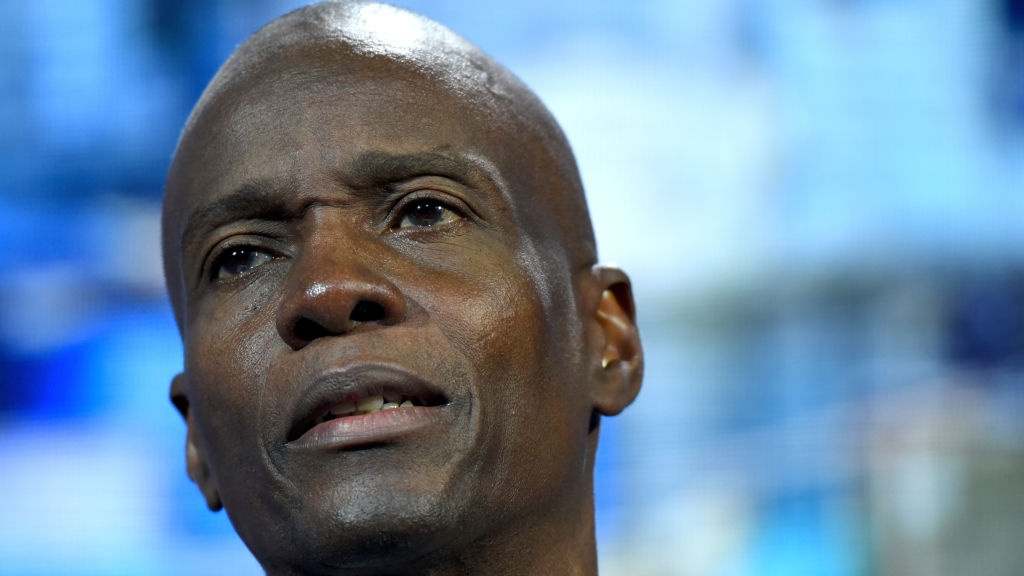Haitian President Jovenel Moise was assassinated in the president’s private residence by unknown gunmen early Wednesday morning.
Moise’s wife was also wounded in the attack, according to a statement released by Haiti’s Interim Prime Minister Claude Joseph. The assassination is a dramatic end to a presidency marked by controversy and widespread protests, and Moise’s killing is the latest of many crises that have rocked Haiti for decades.
Here are five things to know about the developing situation in Haiti.
1. Moise was a controversial president who had been accused of remaining in office illegally
President Moise’s assassination comes after years of protests that accused him of corruption and dictatorial practices. These protests only increased in February, when Moise’s opponents claimed that the president was overstaying his term in office, a charge Moise denied. At issue was a disagreement concerning Moise’s election and the starting date of his presidential term. Moise initially ran for president of Haiti in 2015, but his victory was annulled after accusations of widespread fraud. New elections were delayed for more than one year, and Moise finally took office in February 2017.
The country’s constitution states that the presidential term lasts five years and begins on February 7 following the presidential election. Moise’s foes say the 5-year period began with the first election, meaning that Moise’s term expired in February 2021 and that he was illegally remaining in office past that date. They called on him to step down and even named a replacement, Supreme Court Justice Joseph Mécène Jean-Louis, to serve as interim president. Moise, meanwhile, maintained that his term started when he actually took office in February 2017. This interpretation placed the end date of Moise’s term as February 2022.
2. The identities of Moise’s assassins remain unknown, but there are clues
The prime minister’s announcement of Moise’s death states that some of the assailants spoke in Spanish during the attack. Other reports, allegedly based on videos taken by residents in the neighborhood where President Moise lived, claim that several of the assailants spoke English with American accents and falsely announced themselves as agents of the American Drug Enforcement Agency or DEA. French is the official language of Haiti. The Haitian embassy in Canada described the assailants as "mercenaries" in a Wednesday morning tweet.
3. The assassination follows a disputed February coup attempt
In February, the Haitian government announced that security forces arrested nearly two dozen people and seized supplies of money and weapons that were alleged to be part of a planned coup. The alleged plotters, including a high-ranking police officer and Supreme Court Justice Yvickel Dabresil, were planning to kill Moise, according to the president’s office.
Dabresil was soon released based on international pressure, and most of the other arrested individuals were freed the following month on order of a judge who ruled that they had been illegally arrested. Retired American diplomat Dan Whitman, who last served in Haiti 20 years ago, was accused of being the mastermind behind the coup, an accusation that Whitman said “couldn’t be more bizarre and more untrue.” International critics of Moise accused the president of using the claim of the February coup to justify his own continued rule.
4. Haiti has endured disasters for thirty years, but conditions grew worse under Moise
Haiti has experienced a string of human-made and natural disasters over the past three decades, exacerbating the political and economic instability of the country. Since 1991, the country has faced multiple coups, as well as several outside interventions, including a 1994 U.S. invasion and a United Nations peacekeeping mission that arrived in 2004.
The country has also suffered from various natural disasters, including a devastating 2010 earthquake that killed 300,000 people, shortly followed by a widespread cholera outbreak that left thousands more dead. Hurricane Matthew hit the country hard in 2016, and the COVID-19 pandemic continues to plague the nation. As other politicians have done, Moise came into office promising to bolster the country’s economy and improve Haitians’ standard of living.
Under Moise, economic conditions failed to improve. Furthermore, Haiti was rocked by violence during his time in office, including deadly protests against his rule, assassinations of opposition figures and murders and kidnappings targeting everyday people, particularly those in the country’s middle class.
In addition to remaining in power past the time that his opponents argued his term should end, Moise also postponed legislative elections in the wake of the protests that gripped the country. This left the president, without a new legislature in place, to rule by decree, further exacerbating claims that his rule was illegal and undemocratic.
5. Moise’s death may bring further political instability to Haiti
Per the provisions of the Haitian constitution, the country’s prime minister becomes acting president upon the death of a sitting president. Claude Joseph, who only took office as Interim Prime Minister in April, has indicated that he is currently acting president. However, President Moise had on Monday announced the appointment of a new prime minister, Ariel Henry, who was scheduled to be sworn in today.
The timing of Moise’s death therefore leaves uncertainty as to which official – Joseph or Henry – is actually next in line to take office. Beyond this latest unusual political circumstance, the political instability that has characterized the Moise presidency is unlikely to end with his death, and fights to replace the slain president could plunge the country even deeper into crisis. With details of the assassination and the nature of the post-Moise government still being determined, it remains to be seen how this latest crisis will be resolved.
